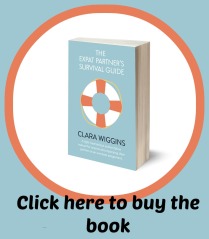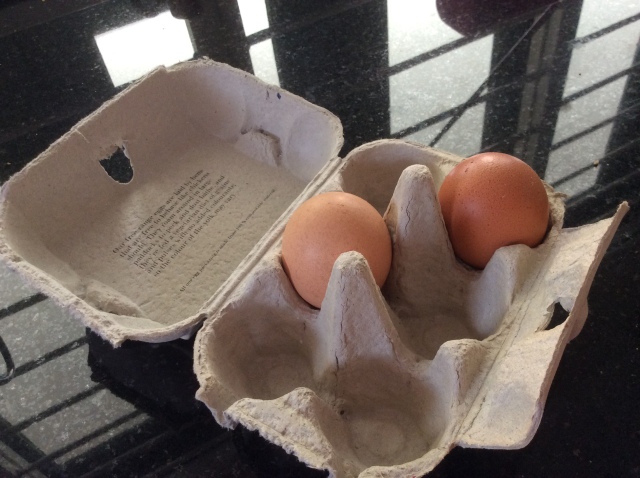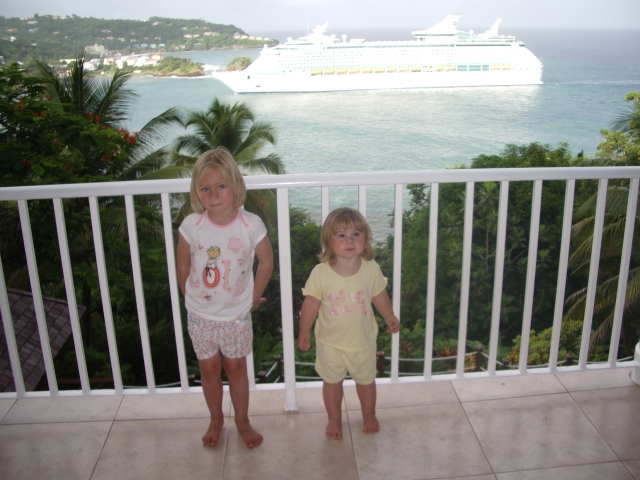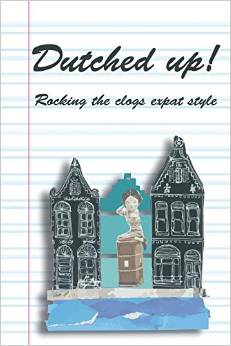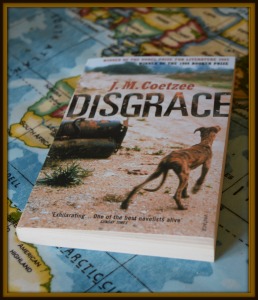 It is hard to believe it is one year since I sat on a mound of grass while my daughter’s played football and watched the comments, likes, shares and sales on that exciting first day when the book went live exactly one year ago.
It is hard to believe it is one year since I sat on a mound of grass while my daughter’s played football and watched the comments, likes, shares and sales on that exciting first day when the book went live exactly one year ago.
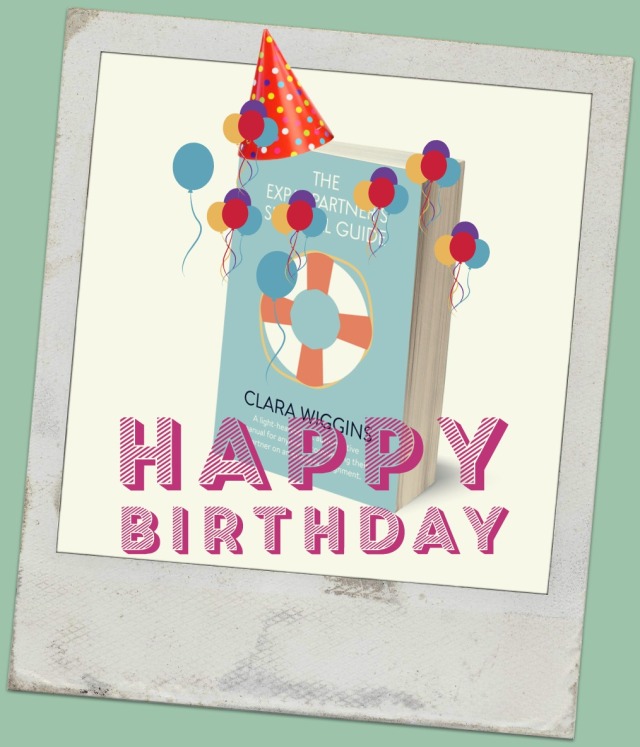
It has of course been a very busy year since – for me personally with our move to South Africa, but also for the book. With marketing, sales, reviews and more there have definitely been a lot of highlights over the past 12 months. Here are some of them:
Marketing
As anyone who has written and published a book knows, writing it is the easy bit – the work really starts when you have to tell people about it (and for anyone who wants to know more about self-publishing read my A-Z Guide). Word-of-mouth is of course still the best way to generate sales but a lot of effort goes into getting enough of those first sales to start to get people talking about your product. Here are some of the things I have been doing this year to make the Expat Partner’s Survival Guide as visible as possible:
- In April 2015, soon after the book’s launch, I was interviewed on our local BBC radio station about the book and why I had written it.
- I was also featured in our local newspaper, the Gloucestershire Echo (gettting the photo for that feature was something I won’t forget – my youngest daughter thought it would be hilarious to spend the whole time doing cartwheels rather than posing nicely for the exasperated photographer….)
- A few days later, I was mentioned in the Mumsnet blogger’s network “dispatches” – a big honour as someone who used to rely on Mumsnet for pretty much everything from advice on which nappies to buy to literally saving my sanity.
- In May I was thrilled that my book had been added to a Wall Street Journal list of Essential Books on Expat Life
- In June I was very excited to receive an email from one of my favourite expat authors Brigid Keenan, who wrote the brilliant Diplomatic Baggage, telling me that she “loved” my book. I was so happy with her praise that I changed the front cover of the book to get her words on there.
- After a bit of a pause in activity due to my move to Pretoria, I was featured on the extremely popular (and very funny) podcast show Two Fat Expats. I wasn’t talking about the book (the show was about holidays) but they were kind enough to mention my book on the podcast and accompanying blurb.
- In October I was interviewed for another podcast show – this one was all about culture shock and it was on the Tandem Nomads site.
- Another honour in March, I was featured on the Displaced Nation’s list of top non-fiction books for expats.
- The book was also the subject of a feature in one of Dubai’s largest newspapers The National – apparently a publication that is popular with expats.
- Right at the start of this month, I featured again on another podcast show – this one called Four Seas One Family on which I discussed such things as depression and male expat partners.
- And just this week I have been recommended as a book to help stay contented as an expat by the wonderful expat blogger Rachel Pieh Jones.
Throughout this time, I was featured on various expat sites (including this one for BlogExpat). I also continued to write my blogs and introduced a number of very popular series – including one on people who live in small places, one on male trailing spouses, and one on expat depression (all still ongoing). Finally, I also continued to write monthly posts for the Expat Focus site.

My photo for the Gloucestershire Echo newspaper.
Reviews
Most important to me are the views of my readers and I have been absolutely delighted with feedback on Amazon. So far I have collected 37 five star reviews on Amazon.com and Amazon.co.uk (I rarely look at the other Amazon sites although I do make the occasional sale on them). It’s not the stars so much as the comments that make me glow inside though – this is one of the latest:
Excellent book!! On my now 10th posting as “trailing spouse” I thought it was time to collect all those diary notes and experiences and put them into a guide for other expat families… but I have just read Clara’s book and know it can’t be topped. Bravo! What a pleasure to read and she have covered it all. I felt myself nodding in agreement all the time. What a great guide!!
Otherwise I have been reviewed on several different sites, including the following:
- Any review that start’s with the line “Not since Harry Potter have I shut a just-finished book and been inclined to pick it right back up at page 1.” is going to make me very happy! And this one from Emily Stewart at BasedTraveler did just that.
- Hubert O’Hearn is an expert book reviewer and also wrote a guest post for my blog. In July he wrote this wonderful review for me.
- One of my favourite expat bloggers Joburg Expat (who was particularly helpful in the run up to our move to South Africa) called my book an “expat bible” in her review.
- The editor of Knocked Up Abroad, a book about birth and parenting overseas that I contributed a chapter to, was another that said she wished she had had the book before moving abroad for the first time.
- The Expat Woman’s website said this was a book that immediately made you realise that you were not alone in your journey in their review.
Sales
Sales have been interesting. The first month was, naturally, the best – as those who had been waiting to buy the book bought it (including my loyal family and friends!), and marketing was at a high. The months that followed remained quite high but the summer months saw a bit of a slump. Things picked up again at the end of the year and December saw one of my best months of the year in terms of numbers sold (in particular hard copies – presumably for Christmas gifts). Since then, I have had some slow months and some good ones – March was another excellent month but April so far has been abysmal! On the whole though, sales have remained steady and I am happy with that – I am nearly half way to my “target” (after which all sales will be a bonus as far as I am concerned!) so I can’t really ask for more than that.
As far as which format sells best, Kindle does better than the paperback version by about 3:2. This isn’t that suprising as many of those who buy it will be living overseas where it is hard to get things posted to them from Amazon. My largest market is the US but the UK comes a very close second – not that suprising as I am a Brit and there probably is more of a British slant on things than anything else.
So that sums up my year. Looking forward, it is hard to know what will happen next with sales. I still look for some great ideas for marketing and continue to search out new markets for the book. But if you have read it, have liked it and think it would help others please do two things for me: tell people about it (in person, on social media, carrier pigeon – I don’t mind!) and write a review on Amazon. Thank you to everyone who has already done so and here’s to Year Two!
Clara’s narrative style is like that of a good friend guiding you through one of the most difficult life-decisions you’ve ever made over a nice cup of coffee (or tea since she is British). She is calm, humorous, and keeps things in perspective. The world “trailing spouse” is one that should be abolished as Clara makes it clear that accompanying partners are anything but “trailing.”
To read the full review please visit the Knocked Up Abroad site.
And in the meantime to read my review of Knocked Up Abroad please go here. .
First of all there was the post about Quirky South Africa that was widely shared and widely commented on. I only put nine things with the hope that someone would suggest a number ten. I got so many ideas (plus I have a few more or my own) that I am currently lining up Some of the Quirky Things I Love about South Africa Part Two. Watch this space!
Then I was honoured to be interviewed about family holidays for the fabulous expat podcast Two Fat Expats, by expat extraordinaire Kirsty Rice. I have read Kirsty’s blog for years (as have literally squillions of other expats) so it was great fun finally getting to talk to her over Skype. As many know, Kirsty has recently been diagnosed with breast cancer. But I think most will agree that she is meeting this challenge with huge dignity and using it as a way to share her experience with others in exactly the same way she has used her expat experience to help others in a similar situation.
I have also featured not once but TWICE in the Wall Street Journal expat’s section – once talking about trying not to put my foot in it when we lived in Cameroon, and then a week or so later discussing expat nostalgia. In the latter, the article linked to my post on Jamaican banana bread that I mentioned in the interview – and I now have visions of WSJ readers all over the world enjoying a slice of this delcious bread with their morning coffee!
I also recieved a lovely review of the Expat Partner’s Survival Guide on one of my favourite blogs, Joburg expat – which I started reading when we first heard we were moving to South Africa and has been a great source of info for me over the months.
I have been writing for the Expat Focus website for a while now (must be coming up for a year as the first post I wrote was about the daunting task of moving to a new country) and my latest column Making the Most of Expat Life – or Spoiling my Future was out at the end of October. I also wrote the last post for a trailing spouse “blog crawl” I have been participating in, a post that turned into a bit of a mega essay tracing my journey here to Pretoria through the various posts I had written for the crawl and titled Making a New Home Abroad – My Journey Back to Trailing-Spouse Land.
Another of my posts went semi-viral (by that I mean it went MEGA viral by my standards but probably not so much by the standards of those posts you read on Buzz-Feed and Huffington Post; it did get shared and read quite a lot though and thus I conclude it hit some sort of nerve with people) – What Do You Wish You Had Known Before Becoming an Expat.
And finally I started a new series, one I am really excited about as I think it is a topic that needs more acknowledgement – the male trailing spouse series. My first post in this series featured Eric in Nairobi, who contacted me after reading my book. Again, the post was widely shared and viewed and I sincerely hope it has helped others in the same situation as Eric. I am on the lookout for more men expat partners willing to be featured to please let me know if you are one or know one!
So that’s it for now – a quick round-up of a busy few weeks. I need to get my head down and start work on another important project which is some posts I want to write about expats and depression. In the meantime please let me know if you have any questions about being an expat partner or if there are any subjects you would like to see covered – either in the comments below or by emailing me [email protected].
Anyway I was thus over the moon when Sine wrote a wonderful review of the Expat Partner’s Survival Guide. She is painstaking in her detail which makes me realise she must have actually read the whole thing rather than just skim!
It feels a bit weird giving an extract of a review that itself gives extracts of your own book but here is an extract:
Clara’s voice is cheerful, uplifting, occasionally funny, and she keeps it moving along at a nice clip. To me, that’s immensely important. I have to like the author if I’m going to stick with them for 300 pages of a self-help book, otherwise… sorry, there just isn’t enough time in my day to spend on uninspired reading.
And another one:
The second strength of The Expat Partner Survival Guide is the voice of other participants. Clara has collected hundreds of personal stories from other expats and expat partners, interweaving them very smoothly with her own narrative. For me it felt a bit like coming across long-lost friends, as I recognized quite a few of the people she interviewed from my own connections in the expat world, like Maria from I Was an Expat Wife and Apple Gidley of Expat Life Slice by Slice.
To read the full review please visit Joburg Expat.
And in the meantime if you haven’t yet purchased your copy of the Expat Partner’s Survival Guide (price fom £2.99/$3.99) – you can go here to find out where to get it from!
Finally if you have read the book and enjoyed it then please consider leaving a review on Amazon for me. I will love you forever. Thank you!
Not since Harry Potter have I shut a just-finished book and been inclined to pick it right back up at page 1. Maybe it’s because The Expat Partner’s Survival Guide (2015) by Clara Wiggins is also written by a witty British lady, but that’s exactly what I’m tempted to do after finishing its final section, the “Acknowledgments.” In the Acknowledgments Clara thanks her husband, employed with the UK Civil Service, “for having a job which allowed me to be able to write this instead of doing proper work.” That statement is the only thing I dislike about Clara’s book, because she’s done a huge service to the expat community.
Through an incredibly well-planned 288 pages, 20 chapters, Introduction and Appendix, Clara walks not only trailing spouses but also single, young, nearly jobless expats (like myself) through the preparations, realities, and opportunities of international living. Yes, Clara targets outright a very specific group of people: Straight women “trailing” their husbands (“partners”) on global postings. Yet she also devotes one chapter totally on male trailing spouses and same-sex partners. It’s true that a single traveler won’t find much information on dating, for instance, and the book nearly completely ignores budgeting (I think this is because most people who expatriate for a job are provided assistance). But the book is such an intriguing read without these details that by its end even the single expat is informed enough to find the information they’re lacking—or simply feel more confident about not knowing!
The Expat Partner’s Survival Guide is a powerfully loving resource for expatriates. Not only does Clara detail her own story and that of her mother, but she also weaves the stories of other expatriates into nearly every page of her piece. Although she cites some of her contributors at the end I cannot image how many more she must have interviewed, how many blogs she read, how many conversations she sat in on to include the quality quotes highlighting every one of the lessons she provides. The stories of other expats are so rich, so poignant, and often so funny that Clara’s book reads like your favorite Aunt’s list of summer camp advice. There’s no denying that it’s insanely useful for anyone hoping to move abroad, most especially if they are families, but it’s also easy to digest. Clara leaves no rock unturned: From preparations to pool parties, schools to shells, fido to friends, she attends holistically to the unique challenges that face expat-partners.
When today I was on the brink of tears in a series of expat-only challenges (bikes, banks, botched meetings…), I giggled instead when I remembered Clara’s use of the term “expatitis.” I remembered reading, “There will be ups and downs, but, as long as you are prepared for what lies ahead, you should be ready to meet every challenge thrown at you.” Even, as she acknowledges in one chapter, “If It All Goes Wrong” and you are forced to return home. I spent the entire book wishing I could call other expat partners I knew to tell them what Clara said. And because of her advice I have also re-prioritized my schedule to allow more time for saying “yes” to socializing and integrating with my local expat community.
As the author of my own expat-focused book, I feel completely refreshed by Clara’s non-competitive, honest endeavor to help any expat find the support they need. In a world full of travel bloggers competing for claims to “the best” advice, Clara’s careful, caring, and learned observation provides the most helpful big-picture guide of them all.
Clara offers two options (Amazon.com, Amazon.co.uk, and Smashwords) for purchasing her extremely affordable e-book on her website: /buy-the-book/
You can also find her on twitter, @strandedatsea, and Facebook, https://www.facebook.com/expatpartnersurvival
And while you’re there, take a peak at their review of the book, which calls me a “skillful writer”  and includes the following:
and includes the following:
Clara has carefully collated a great book and draws on many experiences. She points out that there is more than one answer to all the questions that come our way when moving abroad and that it’s ok to take different approaches. The reader really connects with Clara Wiggins as someone who truly understands challenges and fun that comes with re-locating.
And please, another plea – if you have bought my book and read it (and think others could benefit from it) then do leave a review on Amazon. I will be your BFF (which I am told means Best Friend Forever).
Happy Friday everyone! See you on the other side.
The BASEDtraveler website, and the “primer” books that go with it, are the brainchild of American expat Emily Stewart, who quit her well-paid sales job in Plymouth to set up her own company which provides – in her own words – “comprehensive, amusing, and diverse information for creating the most delightful life as an expatriate living internationally in port cities, industrial hubs, academic villages, or military locations.”
In other words, she’s reaching out to all those people living in the less well-known, the less-glamorous and the less-written about parts of the world but who still need to know where to find decent accommodation, how to get around their new location, what the local schools are like and where they can find a local job.
But as well as including meticulous detail about the location the book is based on (for example, in the case of the Plymouth Primer, there is information about which charity shops in the city are the best place to look for certain items of furniture and which local newspaper is best for job-hunting), Emily also outlines a huge amount of information about moving to the UK that would be useful wherever you ended up living. In fact, I would go so far as to say the book would be useful even for those of us who are natives and have lived here all our lives – how to open a bank account, what the British workplace culture is like (“Your first days in the office will likely be a whirlwind of introductions, offers of coffee, faffing about, and signing papers”) and even a useful dictionary to explain terms like “bimble” “bric-a-brac” and “pissing out”.
In her introduction, Emily calls the book a “labor of love”. I would say this was an understatement. You can see that she has poured everything into this book. Its detail is extraordinary and anyone moving to Plymouth will be extremely well prepared if they pick this up before they arrive. She also writes with a low-level sense of gentle humour, and what comes across as a genuine fondness for the place she is writing about – another plus point for anyone who might be worried about finding themselves suddenly cast adrift in one of the lesser-known cities of the world.
Accompanying the book is the BASEDtraveler website, which includes up-to-date information and reviews. This makes perfect sense as this avoids the traditional guide-book conundrum of how to write about somewhere that will probably have closed down by the time the book is published. The website also includes her personal blog and a quick-and-easy how-to list of things like how to calculate your tax benefits, how to build credit when you have none and how-to get a library card (I told you it was useful for natives as well as expats!).
At the moment, the Plymouth Primer is a proto-type and the only other book in the series is Wiesbaden in Germany, which has it’s own section of the website just like Plymouth, with more information and how-to guides (how-to have a baby in Germany, how to navigate an indoor kinderspielpark….). But Emily is on the look out for writers and contributors to help grow the company, so let her know if you think you fit the bill (eg lives somewhere slightly off the usual expat-beaten-track) and would like to get involved.
It’s a tough market out there and trying to get a book and website like this noticed in the crowded world of guidebooks is going to be tough for Emily. But if anyone deserves success, she does – she has obviously worked so hard on this book, I really hope lots and lots of people buy it. Now, I’m off to find out how to get my bus pass 
Recommended for: Anyone moving to Plymouth or Wiesbaden; anyone moving to the UK or Germany; anyone interested in collaborating on a future Primer book.
To find out more about Plymouth and Wiesbaden Primers and the BASEDtraveler website, including how to buy the books, click here.
If you are interested in writing for the site or even writing your own Primer click here
EDITED TO SAY: Huge apologies but Emily has contacted me to explain that the Wiesbaden Primer isn’t actually available quite yet. However, you can still find plenty of information about the town on the website.
Absolutely stuffed with articles, links, advice, reviews and other information about living abroad – with the emphasis being on your child or children – the website is the brainchild of Carole Hallet-Mobbs. A quick disclosure here: I know Carole personally, as she already lives in Pretoria where we are headed in the summer and we met up when we visited last October. I had also already met her when she was in the UK and she contributed to the Expat Partner’s Survival Guide with some of her own stories.
However, this is actually total coincidence as I first got to know Carole when I answered a question she put out on twitter, looking for input for a post she wanted to write about what to pack for a plane journey with kids. I replied that the best thing we had ever taken was a pair of fairy wings – and our friendship took off. I later wrote several other articles for the site, at a time before I had this blog and was “flexing my writing muscles” – eg avoiding doing what I was meant to be doing and writing my book. But I was more than happy to contribute to this excellent resource.
What I like the most about Your Expat Child is that it has so many real life stories from people at every stage of parenthood. Having taken babies and toddlers to our previous two postings, I suddenly realised how different things were going to be when we moved to South Africa this time with a stroppy seven-year-old and a pre-teen nine-year-old. We were in a whole new world when we started thinking about all those things we’d need to consider with children of this age. Whereas two or three years between postings isn’t that much for adults, children grow so quickly they will have a completely different set of needs every time you move.
I have also been peaking (from behind fingers) at the information about teenagers – something that terrifies me, the more I hear about it. But it’s better to be prepared for how things like relocating might effect your teen rather than being completely blind-sided when the worst happens. And there are some very interesting articles here about things like identity issues and self-harming. All difficult subject matters, made harder if you have to deal with them a long way from home. But all dealt with sensitively and with authority here, helped by lots of input from people who have experienced some of the very things many of us worry most about.
Your Expat Child is helpfully divided up not just by age groups but by subject matter as well. So it’s easy to navigate and to find sections on things such as education (which includes both schools abroad and also boarding schools, as well as info on home schooling), well-being, homesickness, culture shock, friendships and other challenging issues such as keeping safe. There are also some more general articles, like how to cope with long-stay visitors and how to survive the summer exodus.
There is more to this website than I have space to describe here – Carole has built it up over a number of years and keeps on adding to it with new posts, articles, interviews and resources. So if you’ve got a child/children and are either already abroad or thinking of moving overseas (or indeed if you are thinking of starting a family when you are there, as the site covers pregancy and childbirth as well) then I say go on over and check out Your Expat Child.
Recommended for: parents with children, parents who are thinking of having children, older children looking for resources to help them with things like leaving friends behind or culture shock.
Dutched Up is a collaborative effort, a book produced by a collective of writers from around the world who are all either based in the Netherlands now or who have been in the past, and therefore all able to write about expat life in that country from a personal viewpoint. This makes for an honest, as well as often very funny, appraisal of what life is really like for foreigners living in what I have always thought would be a great expat posting.
For the most part, this book doesn’t disprove my instinct. The tales, which range from what it’s like to be short in a country of very tall people to how to steal back your bike (there are a lot of very Holland-specific stories here!), are related with a gentle sense of underlying love for their host country. There are twelve sections altogether, starting with tales of culture shock; continuing on to some of the practical elements of living aboad including eating, shopping, transportation and learning the language (which apparently involves a ‘throaty G’); then through some of those really “big” subjects like work, making friends, marriage, birth and parenting; on to matters of health; some chapters about Dutch life in general and then finally saying goodbye – and what it’s like to leave a place like the Netherlands behind (clue: sad).
By the time you reach the end of the book, you really feel like you know what life is like for the typical expat in that country, whether they be settled semi-permanently and married to a local or visiting only briefly on a short posting. It’s hard to pick out a favourite chapter as there are so many good ones, plus each will appeal to different people depending on their circumstances. But as a trained antenatal teacher, I really enjoyed the chapters about giving birth, and some of the ones on parenting were very eye-opening. However, if it’s laughs you’re after, then I would recommend the Leech – a story of a house-guest who wouldn’t leave:
By the time Saturday rolled around, we were ready to kill him. So far, he’d had his hand out, been fed, had a free place to sleep, been offered endless bottles of beer and had all the Internet and telephone access a person could possibly ever want. We hadn’t seen a thing in return. He hadn’t offered to cook dinner or offered to tidy up a bit. he had just emptied our fridge, used all our toilet paper and just made a general nuisance of himself”.
Perhaps one of the reasons I like this chapter so much is because, although it is based in the Netherlands, it could have happened to any expat, anywhere in the world. I haven’t lived in the Netherlands, and nor am I ever likely to (although I have holidayed there and thoroughly enjoyed my time), so many of the stories are interesting, funny but perhaps not all that relevant to me. However, if you are an expat in Holland, are likely ever to be one, or if you happen to know someone who is heading that way, then this would be an excellent purchase. Read it from cover to cover or dip in and out of it, I am sure you will find it a great source of both knowledge and comfort before, during and even after your Netherlands adventure.
Dutched Up is available in paperback or Kindle edition from Amazon.
I loved this book. It was an interesting story and it was also one of those tales you could interpret in so many different ways. I spent a bit of time reflecting on what it all meant before I did finally read some reviews – and then realised that in fact there were almost as many different interpretations as reviews, and that in the end it is up to us – the reader – to decide what it all means.
In the book, university professor (David Lurie) resigns from his job in “disgrace” after having an affair with one of his students. It appears that the “disgrace” isn’t so much the affair as the fact that he gives her a pass mark in an exam that she doesn’t actually sit. Of course, this in itself is open to interpretation – although this is what he is pulled up for, could it be that this is the best way to get rid of the dinosaur that he appears to have become?
Lurie moves to live with his daughter Lucy in the country – and settles into an uneasy life with her. But the life is torn apart after a group of men attack Lurie, rape Lucy and shoot the dogs Lucy looks after.
This is the crux of the story, and the part which is perhaps the most open to interpretation. Why does Lucy not condemn her attackers? Does she see it as the price she needs to pay for the crimes of her people? Is this the big divide between her and her father, who represents the older generation? Does she need her father to see that he isn’t so different from the men that attacked her – although he wasn’t violent with his young student lover, he undoubtedly used his power to get what he wanted from her, and at no point does it appear she was willingly complicit in the affair. Is the “disgrace” of the title the attack, or the reaction to the attack? Or is it Lurie’s blindness about what he has done and his refusal to link events?
Lurie moves away from his daughter when their relationship deteriorates following the attack, although eventually makes his way back to the countryside where she lives. He works with one of Lucy’s friends putting down unwanted pets – mostly dogs – and the final scene sees him choose a lame dog that he had previously saved from execution. My own interpretation of this is that this is the author showing Lurie finally accepting that it’s time he changes, that the “lame dog” that he is needs to be put down. An end to the old ways?
There is so much more that could be read into Disgrace, but I am sure the reason it has been so widely praised and won the Booker and Nobel prizes is that it so neatly encompasses so many themes and conflicts (Apartheid, gender, the old versus the new) in such a relatively short and simple story. As someone who is moving to South Africa later this year, it also helped frame some of the big issues I will undoubtedly encounter. I thoroughly recommend this book.
This book is reviewed as part of the Africa Reading Challenge.
You can read my earlier review of Lauren St John’s Dolphin Song here.
